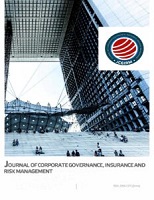Impact of COVID-19 on Audit Risk Assessment Procedures: Insights from Malta
Impact of COVID-19 on Audit Risk Assessment Procedures: Insights from Malta
Author(s): Lauren Ellul, Kylie-Ann Ellul, Peter J. Baldacchino, Norbert Tabone, Simon GrimaSubject(s): Methodology and research technology, Health and medicine and law, Socio-Economic Research
Published by: Acadlore Publishing Services Limited
Keywords: COVID-19; Risk assessment; Risk assessment procedures (RAPs); Audit evidence; Analytical procedures (APs); Malta;
Summary/Abstract: This investigation explores the transformative effect of the COVID-19 pandemic on the risk assessment processes employed by auditors. The primary focus is on how the pandemic has reshaped the identification and evaluation of risks, necessitating alterations in the timing, nature, and extent of risk assessment procedures (RAPs) in the audit risk assessment context. This study, through semi-structured interviews with audit partners and senior managers from Big Four and mid-tier firms in Malta, comprising a total of 15 interviews, delves into the evolving landscape of risk assessment. It has been observed that the pandemic demanded increased vigilance and effort from auditors in understanding clients' businesses and their operational environments. This heightened attention was crucial to identify emerging risks aptly. A shift in the RAPs was discerned, favoring inquiries and analytical procedures (APs) over traditional methods like observation and inspection. The incorporation of Information Technology (IT) tools has markedly transformed the approach to gathering sufficient and appropriate audit evidence, particularly in verifying inventories and property, plant, and equipment (PPE), along with third-party confirmations. Furthermore, the study identifies material risks such as going concern (GC), asset impairment (including plant, equipment, inventory, and receivables), and the impact of external events on companies. An important outcome of this shift is the increased reliance on Artificial Intelligence (AI) and blockchain-based applications, heralding a more efficient and effective risk assessment process. This evolution not only enhances audit quality but also serves the public interest more robustly. The findings imply a long-term impact on audit risk assessment, projecting a continued evolution in the post-COVID era. These insights contribute significantly to the discourse on audit practices in times of crisis, underscoring the need for adaptive methodologies and the integration of advanced technologies in audit procedures.
Journal: The Journal of Corporate Governance, Insurance, and Risk Management (JCGIRM)
- Issue Year: 10/2023
- Issue No: 2
- Page Range: 96-117
- Page Count: 21
- Language: English

